“‘The trouble, Mason, is that you find too many bodies.’
“Mason said, ‘No. The trouble is that I can’t stay in my office and wait for people to come in and see me the way clients are supposed to. I have to get out on the firing line. When you do that, you circulate around quite a bit and . . .’
“‘And you still find too many bodies,’ Tragg said.
“‘I was going to add,’ Mason remarked, with some dignity, ‘that once a man gets a reputation for being a good lawyer in a murder case, murders have a tendency to gravitate in his direction.’
We move from 1934, where Perry Mason’s fifth recorded case, The Case of the Curious Bride, was Erle Stanley Gardner’s first stab at a matrimonial title, to 1941, and although Mason’s 18th adventure, The Case of the Haunted Husband, ostensibly switches genders, this is most definitely a book about how dangerous it was for a woman to navigate through mid-20th century America.
The novel begins (rarely for Gardner) hundreds of miles away from Los Angeles and from Perry’s office. We find ourselves in Zander’s Tropical Shack, a San Francisco nightclub, where hat-check girl Stephane Claire Olger has just had a run-in with her seedy manager. He has evidently been stealing the tips and framing Stephane for the deed. And the only way she can make things right is to . . . well, you know.
But Stephane is made of sterner stuff. She survived her parents’ death and fled the domineering guardianship of her wealthy uncle. Stephane has dreams of Hollywood stardom, and she decides to walk off her job and hitchhike to L.A., dropping her last name at a co-worker’s insistence to give herself a better moniker for the screen. She makes it all the way to Bakersfield in the company of a kindly gentleman, but when she makes the switch to complete the ride, she finds herself in the presence of a true cad, who plies her with liquor and makes a play while the car is going sixty! The resulting accident lands Stephane in the hospital, where she wakes to find herself in police custody: it turns out that she was found behind the wheel with no fellow passenger in sight, that she has been accused of stealing the car belonging to a prominent film producer, and that the accident she is accused of causing has resulted in a man’s death.
It’s clear to everyone, including Stephane’s only friend in town, Hortense Zitkousky (the Cast of Characters describes her as “well-upholstered;” another word might be zaftig), that the girl needs a lawyer. The break comes (as it always does) when Horty decides that this lawyer must be Perry Mason. And while it’s great for Stephane that Mason is on the case – he sics his P.I. watchdog Paul Drake onto the matter right away – it’s also clear that, in 1941 Hollywood, even the good guys are dogs:
- “’Incidentally, Perry, (Stephane’s) a raving beauty, the platinum blonde type.’
- “‘What’s wrong with Horty?’ Mason asked.
- “Drake grinned. ‘If you’d take about thirty pounds off her, Perry, she’d . . . ‘
- “‘Ruin her disposition,’ Mason interrupted.
- “’‘There’s something to that,’ Drake admitted. ‘she certainly is comfortable, that girl. Feels comfortable herself, and makes you feel comfortable. Miss Claire tells me that the boy friends who talk to Horty talk matrimony.’
- “‘Bet she’s a good cook.’”
Right off the bat, this is a more lively – dare I say zany? – book than Curious Bride. The defendant here is sharper and more sympathetic; in fact, all the characters – including the murderer, the police and the D.A.! – are more fun to hang around with than in the last case. This is the second novel in which Homicide detective Lieutenant Arthur Tragg appears, and he has a major role. Clearly, Gardner preferred Tragg as an antagonist for Mason to the Neanderthal Sergeant Holcomb, and here the two men circle each other with wary mutual respect and come this close to sharing a steak. Tragg even gets to dance with Della Street!!
And there are other wonders to behold as the case continues. See Perry apply “legal logic to the scheme of existence” as he gives a grieving widow a pep talk about life. Observe Mason call on the services of one of the suspects to dig information on another – which leads to an all too rare (for Gardner) second murder. Watch Della Street get positively giddy as three men fight for her attentions on the dance floor and still get the job done for her boss!
Mason is on fire throughout here, running from his office to court, to multiple witnesses’ homes and scenes of the crime. He is also deeply flawed here, committing some acts that almost make you sympathize with Tragg and certainly have you commiserating with the hapless Paul Drake. And, as is his wont, Gardner gives Perry the chance to give a stirring speech to Della about his motivations:
“I’m a hunter, Delia. Some men get their thrills in life out of standing up to a charging lion or tiger. Some like to shoot small birds; some just like to hunt, not for what they kill, but for the thrill of hunting . . .Well, I hunt murderers. I think I know who killed Greeley. It’s the only solution which fits in with the facts. And, Delia, I want to bag that murderer. I don’t want track to do it. I’m willing he should have the credit, but I want to be the one to do the hunting, and finding.”
In Curious Bride, Perry was remarkably cold and abrupt to his client – and then spent the rest of the novel making it up to her. In Haunted Husband (a title that fits with my theme but which I confess feels pretty arbitrary here), Mason is little short of gallant to the quartet of women who figure into the case. And nowhere in the canon that I’ve read so far can I remember a time when the attorney was more sympathetic to a killer who really doesn’t deserve it, to the point where Della accuses him of being “a softie.”
* * * * *
“The Case of the Haunted Husband” premiered on January 25, 1958 as the 19th episode of the first season of Perry Mason. It manages to be faithful to the beats of the original story – albeit very much simplified – while also managing to siphon out nearly every bit of fun from the book. The stylishness of the characters and dialogue are gone, and the defendant has been reduced to a helpless drip. About the only positive is the large amount of screen time given to Lt. Trask. There’s no doubt that the late, great Ray Collins was too old for the role; even Erle Stanley Gardner thought so. But he still turns in a fine performance, and there’s one moment of levity that is not in the book which lends his character an air of mystery. At the very end, he’s chastising Mason for having tried to cover up the second murder, using the presence of a pillow feather in Mason’s office as proof. Perry leads Trask to realize that the feather could have been carried in on the shoe of the murderer, whereupon the policeman claps his head and cries out, “Oy gevalt!” This has led critics to wonder if Trask is Jewish.
I say, welcome to the fold, Lieutenant!
Coming up on April 14th: an island for sale, a sleazy shakedown and murder on a pleasure cruise!
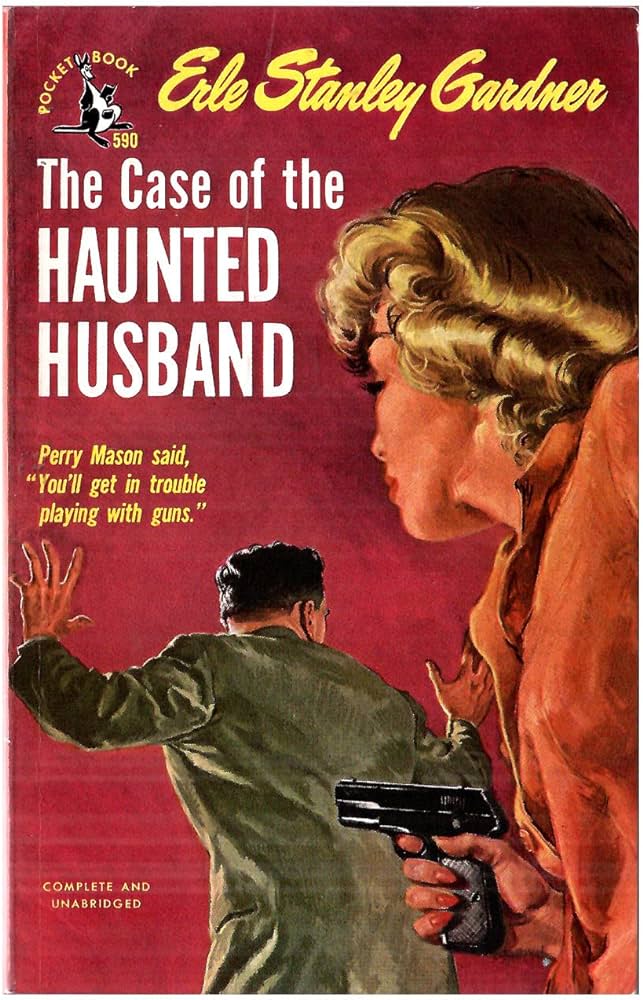
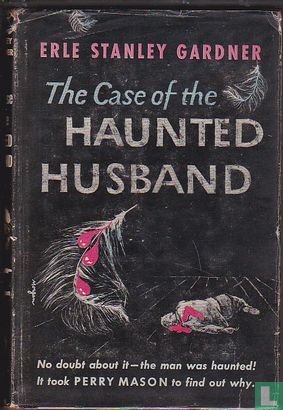
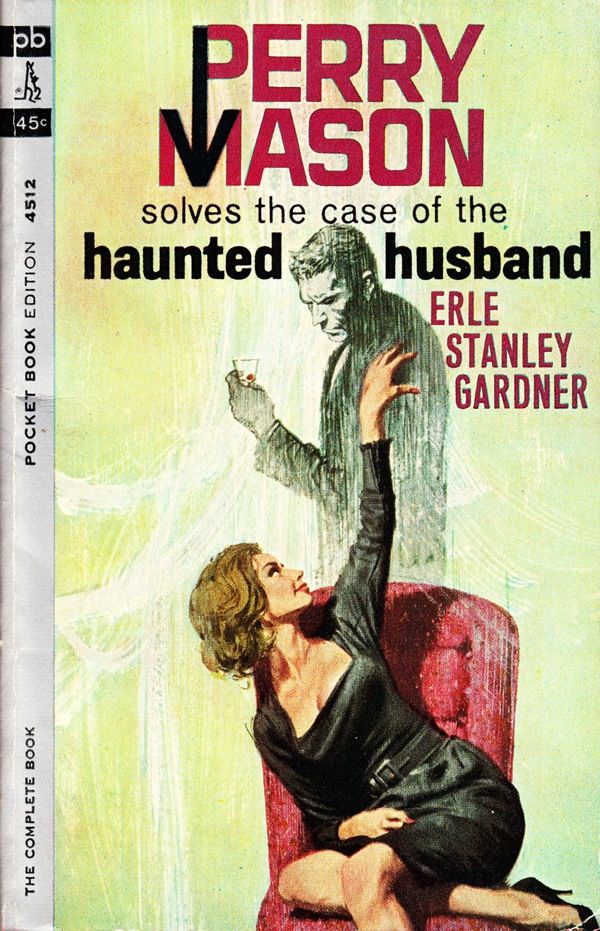
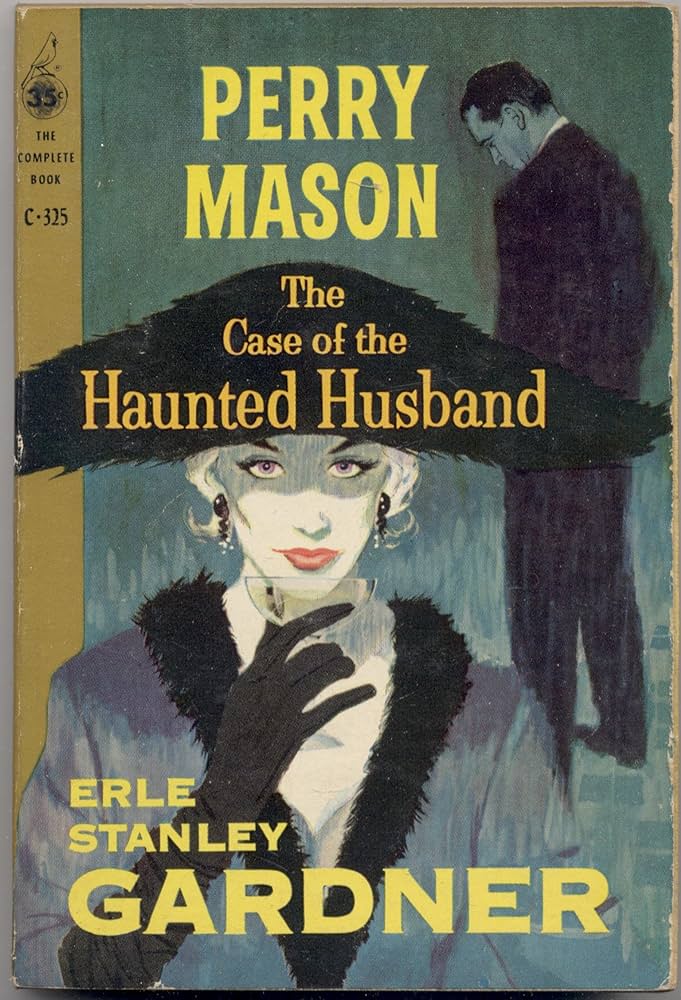
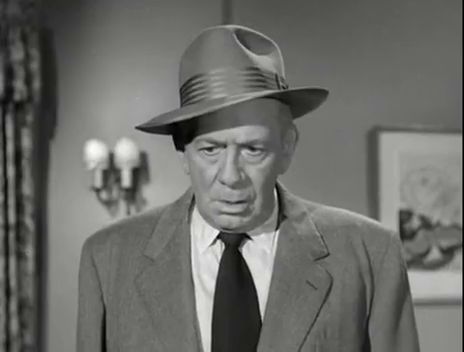
Your attention to detail brings your fictional world to life in such a captivating way.
LikeLiked by 1 person
Thank you! That’s a very sweet thing to say! Books like these make it easy!
LikeLike